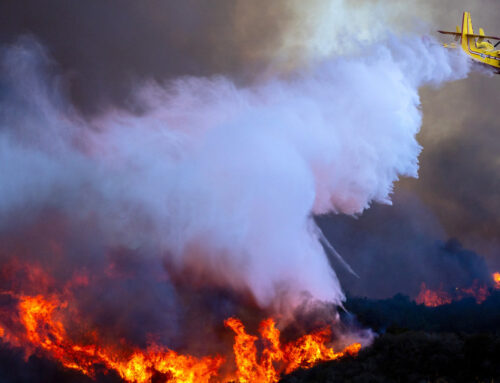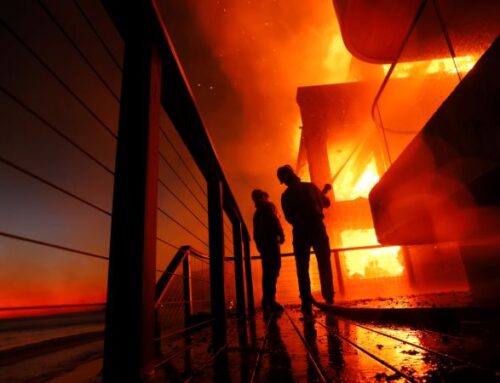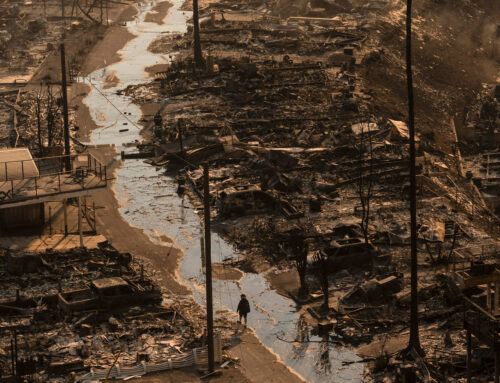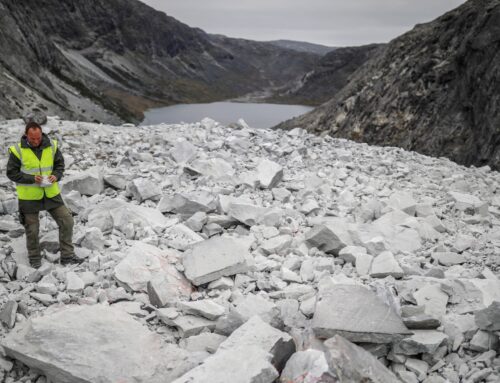Yes, wildfires have always happened in California, but climate change is making them worse
January 14, 2025
As the narrative of the Southern California wildfires has shifted to identifying the causes behind what could prove to be the most expensive natural disaster in U.S. history, a common refrain has emerged on social media that seeks to dismiss the role scientists say climate change played.
“California has forest fires every year,” a commenter wrote in response to a Yahoo News story on distinguishing the singular cause of a fire from its underlying aspects.
“To say California has always had wildfires, that they’ve always had extreme events, is a classic form of climate denial,” Peter Gleick, a climate scientist and the co-founder of the Pacific Institute, told Yahoo News. “For years, those of us in the climate community have heard, ‘The climate has always changed. We’ve always had floods, droughts and heat waves.’ And that’s just totally disingenuous. Of course we’ve had those things. The question is whether climate change is making those things worse, and the answer is yes.”
Several Republican lawmakers disagree, including President-elect Donald Trump, who has called climate change “a hoax,” and Sen. Ted Cruz of Texas, who in 2017 stated, “The climate has been changing from the dawn of time. The climate will change as long as we have a planet Earth.”
“‘There have always been droughts, there have always been floods, there have always been hurricanes, there have always been wildfires.’ All of this is of course trivially correct in the sense that it’s true, but irrelevant,” UCLA climate scientist Daniel Swain said. “The question is: Are they changing in a way that increases risks as a result of this contemporary episode of human-caused climate change?”
University of Pennsylvania climate scientist Michael Mann, who regularly spars with skeptics, said in an email that climate change “is the primary reason for the increasingly widespread, damaging and deadly North American wildfires.”
The scientific consensus is not that rising global temperatures are creating problems that never existed before, it’s that it is making many existing problems, such as wildfires in states like California, quantifiably worse.
“Research shows that changes in climate create warmer, drier conditions, leading to longer and more active fire seasons,” NOAA says on its website. “Increases in temperatures and the thirst of the atmosphere due to human-caused climate change have increased aridity of forest fuels during the fire season.”
In a summary of that research, the American Association for the Advancement of Science wrote on its website that “human-caused climate change caused more than half the increases in forest fuel aridity (how dry and flammable vegetation is) since the 1970s and has approximately doubled the cumulative area burned in forest fires since 1984.”
That dynamic has been witnessed once again in the wildfires that have ravaged the Los Angeles area. Swain pointed to “the two wet winters that preceded the fires and the abundant grass growth that allowed for there to be more fuel” as well as the “extreme transition into the driest start to the rainy season ever recorded in California.”
“We do know in general that climate change is increasing the severity, and that includes the intensity, of the fires and the speed at which they spread,” Swain added.
All of that is a consequence of rising global temperatures caused by the continued burning of fossil fuels.
“Part of the news this week that has gotten lost in the noise is that 2024 was the hottest year on record and the last 10 years have been the hottest 10 years on record. High temperatures increase the demand for water by solid and vegetation,” Gleick said. “It increases the contributing factors to the fire. Los Angeles has gone almost 10 months without any rain and that has played a role in worsening these fires.”
Swain was part of a team that released a study in 2020 that concluded that unless greenhouse gas emissions are dramatically curbed, climate change will continue to “further amplify the number of days with extreme fire weather by the end of this century.”
Consequently, the rising risks from wildfires, which have long been a part of life in the American West, will not diminish any time soon. The hard decisions surrounding land management efforts and whether to rebuild in fire-prone areas will become that much more important to address.
“Those questions are not mutually exclusive with the climate change component, and that is what is so frustrating,” Swain said.
While many climate skeptics look to dismiss the problem by arguing that the problems associated with rising global temperatures are nothing new, others have sought to score political points.
In a Monday interview with Newsmax, Trump took aim at California’s elected officials, who he said “could’ve, you know, maintained their forests.”
But that kind of binary thinking misses the point, according to experts like Gleick.
“Forest fires in California have a forest component to them and I don’t think anyone would disagree that we need to be better about managing our forests,” Gleick said. “That’s true in general, but it’s absolutely true especially in the context of climate change. Climate change is going to affect forest management the way it’s going to affect everything else.”
Search
RECENT PRESS RELEASES
Related Post




